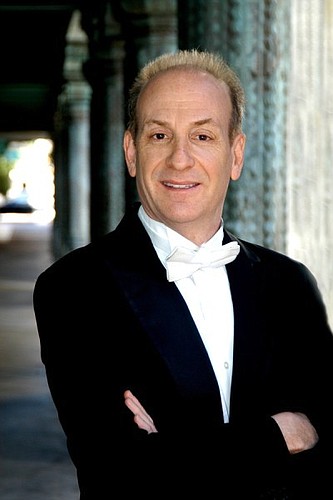- November 25, 2024
-
-
Loading

Loading

Fifty years ago — 1964 — I was studying at the Hartt College of Music, and my parents were testing the waters of the Gulf of Mexico here in Sarasota. Music-lovers, they felt they’d found paradise when they realized Sarasota had a chamber music festival. In the next couple of years, they recognized some of my high school and conservatory classmates playing chamber music here.
Now, 50 years later, my parents are gone, but the great Sarasota music-making lives on with those classmates of mine, who are now faculty members of the Sarasota Music Festival, and I, sitting in the audience, writing reviews.
On June 7, in the Opera House, Larry Rachleff led a lean, keen, brilliant orchestra in a performance of Beethoven’s Second Symphony that wasn’t my father’s (or my) Beethoven Second. For those of us used to romantic Beethoven, this was true classical music: transparent, youthful, exuberant, powerful and stylish. Conducting without a score, Rachleff brought out inner voices I hadn’t heard before and, believe me, I know this symphony.
The larghetto from this work served as the “filler” music on WQXR’s “Symphony Hall,” a program I hosted during my shift, five nights a week for more years than I like to mention. The recording we used was thick and lush, romantic and opulent. What we heard tonight was spare and lean. It threw me at first, but then I realized this is Beethoven. Early Beethoven. It’s from the Classical period. It’s not romantic. It’s not Brahms. And Rachleff and his wonderfully talented orchestra, made of super-talented students who were like me and my friends 50 years ago, brought out sounds that reminded me how amazing music can be because, when it’s played well, it’s never stagnant or inert. It has life, new life. And that’s why teaching festivals like the one we have here are so important. We all learn from them, and they keep us young and vibrant, like the music.
The concert opened with a conductorless reading of Vivaldi’s Concerto Grosso in B minor from “L’estro Armonico.” Featuring a quartet of violinists — veterans Joseph Silverstein, Ani Kavafian and Alexander Kerr, with Chapman University student Emily Uematsu — and a baroque chamber ensemble, there were a few moments of fizzy pitch but, for the most part, it was a straightforward performance with each of the musicians listening intently to each other for cues and colors.
Ravel’s “Le tombeau de Couperin” with Rachleff (again scoreless) at the helm had a wonderfully brisk feeling with sweeping tempos and lots of forward motion in the opening prelude and well-known and beloved final rigaudon.
After intermission and before the Beethoven one of the students spoke eloquently and succinctly. He told us how exciting it was to work with such famous musicians. He called them, “household names” and said he was bowled over by sharing “an elevator in a hotel with them and talking about Mozart.”
Those household names are the people who, 50 years ago were those kids, gazing adoringly at other household names who’ve since left their marks on chamber and orchestral music as we hear it today. The Sarasota Music Festival is celebrating an important anniversary this season. It’s thrilling to think that 50 years from today, some of those students who were playing Beethoven’s Second tonight will be the household names teaching yet to be born musicians of the future.